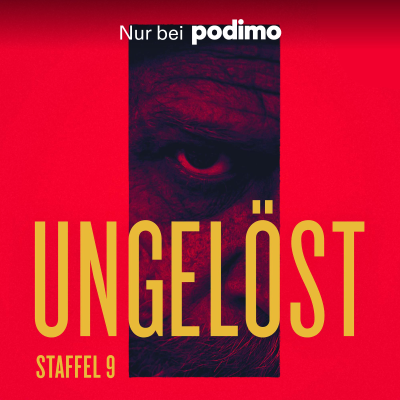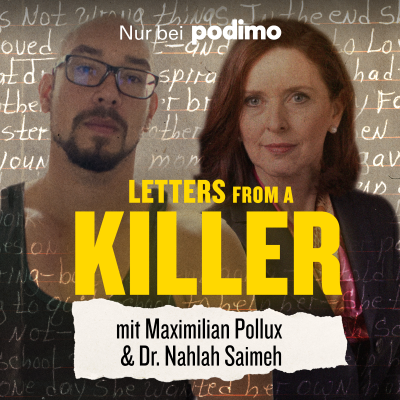
Bret Hammond
Englisch
Kostenlos bei Podimo
Kostenlos hören bei Podimo
Starte jetzt und verbinde dich mit deinen Lieblingspodcaster*innen
- Vertraut von über 1 Mio. deutschen Hörer*innen
- Über 1.000 lokale Podcasts und Shows – nur bei Podimo
- Keine Zahlung nötig
Mehr Bret Hammond
Bret Hammond is the Spiritual Formation Pastor at South Side Christian Church in Springfield, Illinois. This podcast is a collection of his sermons.
Alle Folgen
526 FolgenGive Thanks; Psalm 136
Some weeks, the loudest voice in your life isn’t God’s—it’s the one telling you what you’re not. It whispers before you’re fully awake. It follows you into the car, into the office, into the quiet moments. And most days, it doesn’t need anyone else’s help; we’re perfectly capable of discouraging ourselves. Relationship researchers John and Julie Gottman found that negative words hit us harder than positive ones, so much so that it takes about five positive interactions to counter just one negative moment. And while other people’s criticism can sting, the deeper wounds usually come from the things we mutter inwardly: You’re not enough. You’re not capable. You’re pretending . . . and someone will eventually find you out. Left unchecked, that inner voice only grows louder. It’s exhausting trying to outshout your own self-doubt. Thankfully, our Heavenly Father has already stepped into that fight on our behalf. In Psalm 136, He doesn’t reassure us five times but twenty-six times that His love never ends. Twenty-six reminders that you are seen, known, and cherished. Twenty-six reasons to trust that His steadfast love truly endures forever. As we approach Thanksgiving, let’s fill our hearts with the greatest reason to give thanks—the never-ending love of God.
Toto: The Spirit Has a Soft Side
In John 14:15–27, Jesus promises the Holy Spirit as our Advocate, Comforter, and Friend—the one who steadies our hearts and keeps us focused on him. Using imagery from The Wizard of Oz, Bret compares the Spirit’s quiet guidance to Toto’s loyal presence beside Dorothy: alert, faithful, and always sensing what’s true. When fear and distraction rise, the Spirit redirects us toward Jesus and fills our troubled hearts with peace—the kind the world can’t give or take away.
Why Do You Worry? Matthew 6:25-34
Are you having a good morning? Let’s see if we can fix that. Did you know crocodiles can gallop like horses? They’re crazy fast! Did you know there are approximately 40 supervolwcanoes worldwide, and they are way overdue to erupt? They could go off any minute now. Did you know your cellphone has ten times more bacteria on it than the average public toilet? In a world where worries are everywhere, Jesus’ question in Matthew 6:28 sounds a little simplistic: “Why do you worry?” Why wouldn’t I worry, Jesus?? Have you heard about the volcanoes??? But here’s the thing: when Jesus talked about worry, he didn’t mention crocodiles, volcanoes, or germy phones. No — he mentioned food, drink, and clothing. Those daily needs we all have and, for the most part, have enough of. But what about those who don’t? I can’t do much about the crocodiles out there, but if I’m not worried about my daily needs, maybe I can do something about someone else’s worries. Today at South Side Christian Church, we’ll hear Jesus’ words about worry and his prescription for a worry-free community. I hope you can join us at either 9:00 or 10:30 am. We’d love to see you there. Oh, and you probably ought to wipe that phone off after you’re done reading this.
What Is Your Name? Mark 5:1-20
"Who was that masked man?" I must have heard that line a hundred times growing up, watching reruns of The Lone Ranger. At the end of every episode, the townspeople would stand around in awe as the stranger rode off into the sunset, wondering about the identity of their mysterious rescuer. But it doesn't take a mask to wonder about someone's identity—or your own. Far too often, we hide behind something—pain from the past, shame we've carried too long, names that were never really ours but somehow stuck. In Mark 5, Jesus meets a man who's lost his name to chaos. He knows himself only by his wounds. But Jesus doesn't leave him there—he speaks freedom and gives him an identity greater than he could have imagined. If you've ever wondered who you really are, Jesus offers an identity rooted not in your failures, but in his grace.
How Can I Give You Up? Hosea 11:1-11
Hosea laments Israel's lusts for idols, but never loses sight of God's unfailing love and compassion. In Hosea 11, we hear God's constant call for his people to return to him. This sermon follows the Four Pages of the Sermon method developed by Paul Scott Wilson, a framework designed to move from trouble to grace both in the text and in our lives. It invites listeners to reflect deeply on the nature of divine love—one that refuses to abandon, even when abandonment seems justified. For more on the Four Pages approach and how it shapes sermons like this, visit: https://www.brethammond.com/2025/04/four-pages/.















































